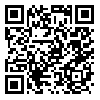Volume 7, Issue 2 (June 2025)
IEEPJ 2025, 7(2): 0-0 |
Back to browse issues page
Download citation:
BibTeX | RIS | EndNote | Medlars | ProCite | Reference Manager | RefWorks
Send citation to:



BibTeX | RIS | EndNote | Medlars | ProCite | Reference Manager | RefWorks
Send citation to:
Abedini M. (2025). The Effect of Meetings Management Using the UML Method on the Development of Problem-Solving Skills among Personnel in the Education Department. IEEPJ. 7(2), doi:10.22034/ieepj.2025.7.2.865
URL: http://ieepj.hormozgan.ac.ir/article-1-958-en.html
URL: http://ieepj.hormozgan.ac.ir/article-1-958-en.html
Assistant Professor and Faculty Member Department of Educational Administration, Farhangian University, Tehran, Iran , mahnoosh_abedini@yahoo.com
Abstract: (696 Views)
Objective: This study aimed to evaluate the effect of meeting management using the UML method on enhancing problem-solving skills among education department personnel in Qeshm.
Methods: A semi-experimental design with pre-test and post-test control groups was employed. The study sample included 40 participants randomly assigned to test and control groups. The test group received training on managing meetings using the UML method through six structured sessions, while the control group did not receive such training. Problem-solving skills were assessed using a six-factor questionnaire developed by Cassidy and Long, which evaluated indigence, control, innovation, contact, opposition (avoidance), and self-confidence. Pre-test and post-test data were analyzed using descriptive statistics (mean, standard deviation) and inferential methods (analysis of covariance).
Results: Results indicated a significant improvement in problem-solving skills in the test group compared to the control group. Specifically, the UML-based meeting management enhanced participants' abilities in all six problem-solving domains. Training sessions helped participants develop clearer communication, greater confidence, and improved innovation in addressing challenges.
Conclusions: These findings underscore the effectiveness of UML as a structured method for meeting management, particularly in fostering problem-solving skills in educational settings. Given its impact on both individual and organizational development, the UML method offers a practical framework for enhancing meeting efficiency and addressing professional challenges. This approach can be widely adopted in similar contexts to support personnel development and promote collaborative problem-solving.
Methods: A semi-experimental design with pre-test and post-test control groups was employed. The study sample included 40 participants randomly assigned to test and control groups. The test group received training on managing meetings using the UML method through six structured sessions, while the control group did not receive such training. Problem-solving skills were assessed using a six-factor questionnaire developed by Cassidy and Long, which evaluated indigence, control, innovation, contact, opposition (avoidance), and self-confidence. Pre-test and post-test data were analyzed using descriptive statistics (mean, standard deviation) and inferential methods (analysis of covariance).
Results: Results indicated a significant improvement in problem-solving skills in the test group compared to the control group. Specifically, the UML-based meeting management enhanced participants' abilities in all six problem-solving domains. Training sessions helped participants develop clearer communication, greater confidence, and improved innovation in addressing challenges.
Conclusions: These findings underscore the effectiveness of UML as a structured method for meeting management, particularly in fostering problem-solving skills in educational settings. Given its impact on both individual and organizational development, the UML method offers a practical framework for enhancing meeting efficiency and addressing professional challenges. This approach can be widely adopted in similar contexts to support personnel development and promote collaborative problem-solving.
Type of Study: Original |
Subject:
Educational Psychology
Received: 2024/12/16 | Accepted: 2025/05/28 | Published: 2025/06/1
Received: 2024/12/16 | Accepted: 2025/05/28 | Published: 2025/06/1
Send email to the article author
| Rights and permissions | |
 |
This work is licensed under a Creative Commons Attribution-NonCommercial 4.0 International License. |







